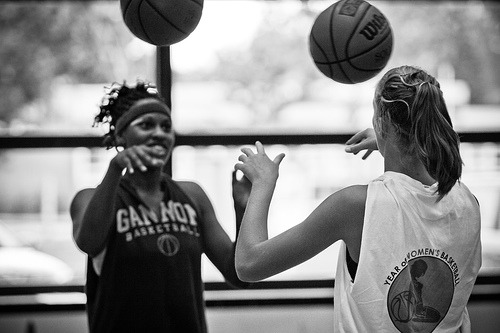
I wasn’t originally sold on the idea of blogging.
Even when I tried to get in the habit of posting, I found it hard to stick with. Blogging took time — time to write essays daily, put in links, clean up spam, and respond to the comments that trickled in, time that was uncompensated. Why, I wondered, would I take time away from paying assignments to put my work out there for free?
Even after my book, 168 Hours, came out in 2010, and I realized I needed to interact with readers, I still thought blogging was a side venture to my real writing. More days than not, I’d take 30-60 minutes to write a post and publish it, but I still viewed it more as a labor of love (or at least PR) than anything else.
Then something funny happened. About a year into daily blogging, I’d carve out time to write a draft of an essay for a newspaper or magazine. I’d give myself until lunch, but by 10:00, I’d be done.
What was going on? I finally figured it out while reading Practice Perfect: 42 Rules for Getting Better at Getting Better, by Doug Lemov, Katie Yezzi, and Erica Woolway. These three educators have trained thousands of teachers over the years, and they studied patterns in how teachers improved at their craft, and how others do, too. The big breakthroughs, they noted, came from drills — discrete actions that focus on certain skills — in order to automate certain practices you’d like to improve.

Basketball players do shooting drills and passing drills. Piano players do arpeggios and scales. As they carve these actions into their muscle and mental memory, they can summon these skills almost by instinct during performances or games. That gives them the mental space to focus on bigger things — the arc of a piece, the layout of players on the court.
For a writer, blogging turns out to be a daily drill. By writing lots of don’t-need-to-be-perfect blog posts, I learned how to crank out rough drafts fast. By carving out time for daily practice, I made myself more efficient at my work. Each hour spent blogging saved me time later as I stewed less over drafts and had more time for edits.
Put in that light, blogging now seems like the most productive part of my day. Not only am I interacting with readers, I’m getting faster at what I do! Just as I accepted practice as part of studying the piano years ago, I embrace blogging as the “practicing” part of my writing work.
If you’d like to get more efficient at your work, making time every day for practice drills could likewise be one of the most productive decisions you make. To be sure, not everyone has a job where the drills are as obvious as blogging, in retrospect, was for me. But if you think about your job and how you spend your time, you can likely see certain skills you use repeatedly.
Maybe you make presentations. Maybe you deliver feedback to employees. Maybe you field hostile questions from clients. Think about how you can isolate these skills and practice them repeatedly. Ask your team members to launch a rapid-fire barrage of criticism about a proposal at the end of a staff meeting, for instance.
Most people don’t consciously practice their job. If you do, it can be a source of major competitive advantage. Keep track of your practice and how you’re improving individually or as a team by writing it down.
Most importantly, you have to actually make time for your practice drills. When you spend time getting better, you often get better. And that’s a much better place to be.
Do you make time to practice?
Liked this guest post? Subscribe to our free newsletter for more great content on productivityand how we work!
Images: [1] Jay Ryness; [2]: Matthijs
